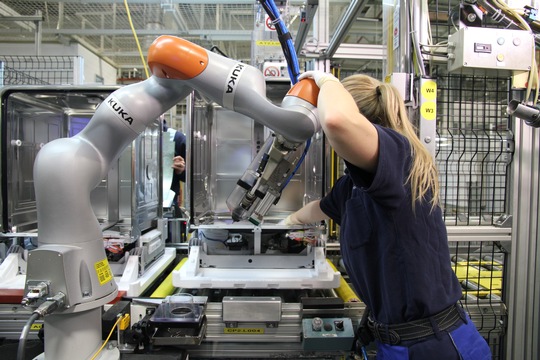
U.S. Bureau of Labor Statistics reported positive impact on employment in past 10 years
Companies around the world are increasing their use of industrial robots: Within five years, the global operational stock rose by about 65 percent to 2.4 million units (2013-2018). For the same period of time, the U.S. Bureau of Labor Statistics reported a positive impact on the job market: Employment in the automotive industry – the largest adopter of robots – increased by 22% from 824,400 to 1,005,000 jobs (2013-2018). These facts contradict the conclusions recently published by MIT´s news office on economist Daron Acemoglu´s research. Based on data between 1990 to 2007 he deduces an overall negative effect of robots on employment in blue-collar working communities in the US. Yet, recent experience in the US, Europe and Asia proves the opposite: robot adoption will likely be a critical determinant of productivity growth for the post-COVID-19 economy. These are results of the International Federation of Robotics.
“The impact of automation on employment is not in any respect different from previous waves of technology-driven change,” says Milton Guerry, President of the International Federation of Robotics. “Productivity increases and competitive advantages of automation don´t replace jobs – they will automate tasks, augment jobs and create new ones.”
OECD Research: “Ten times more productive”
Research by the OECD shows that companies that employ technology effectively are ten times more productive than those that do not. To equip the workforce with the soft skills and technical knowledge required in the post-COVID-19 economy, a tight collaboration between industry, government and educational institutions is needed. Governmental policy incentives should encourage corporate investment in training and support funding of education.
Renaissance of industrial production
Companies around the globe are reassessing their global supply chain business models in reaction to the lessons learned from coronavirus. This will likely accelerate the introduction of robots, leading to a renaissance of industrial production in some regions – and bringing back jobs. After the crisis, IFR expects a considerable boost for robotics and automation, even if the industry cannot currently decouple itself from the economic downturn
www.ifr.org


















































































